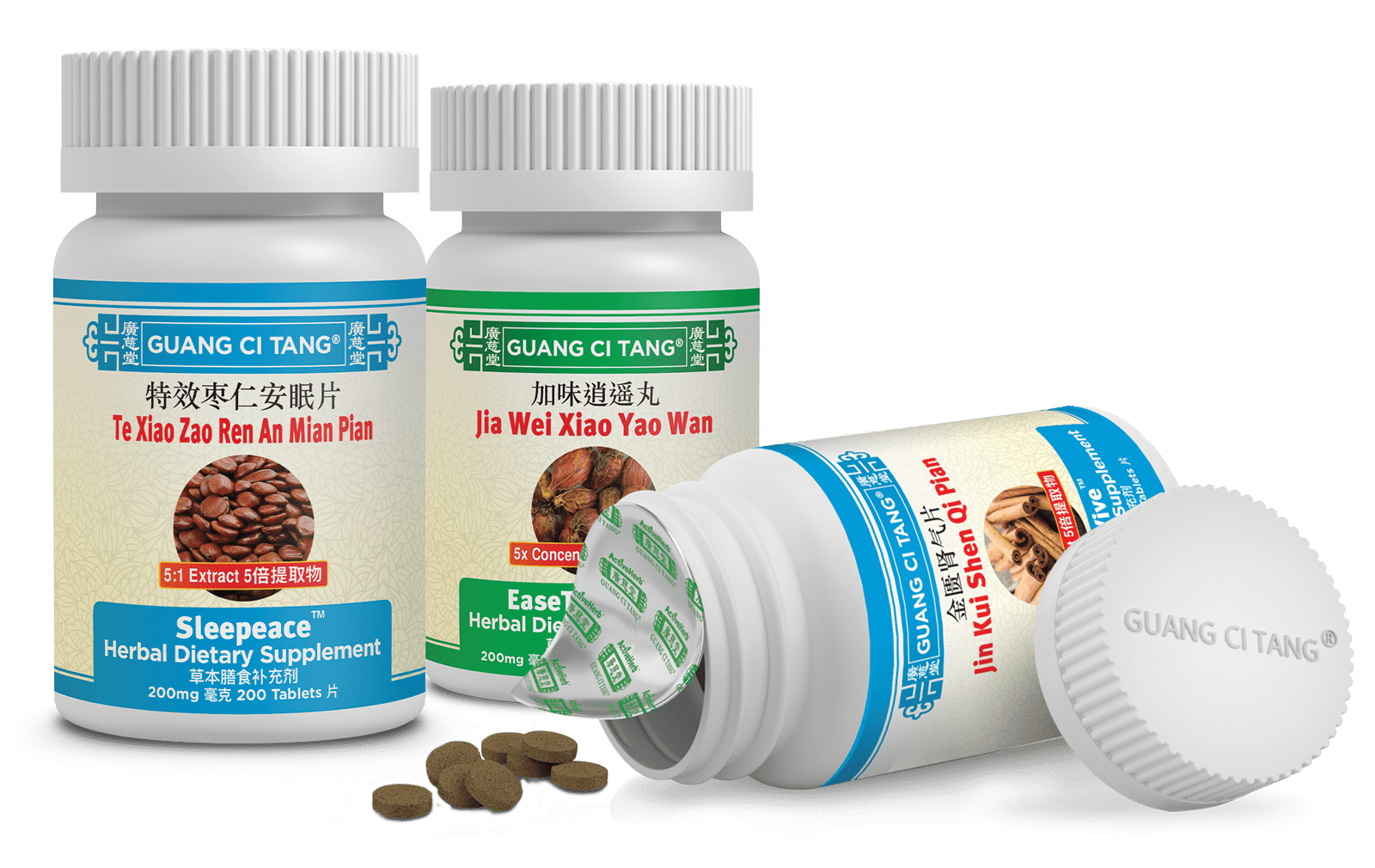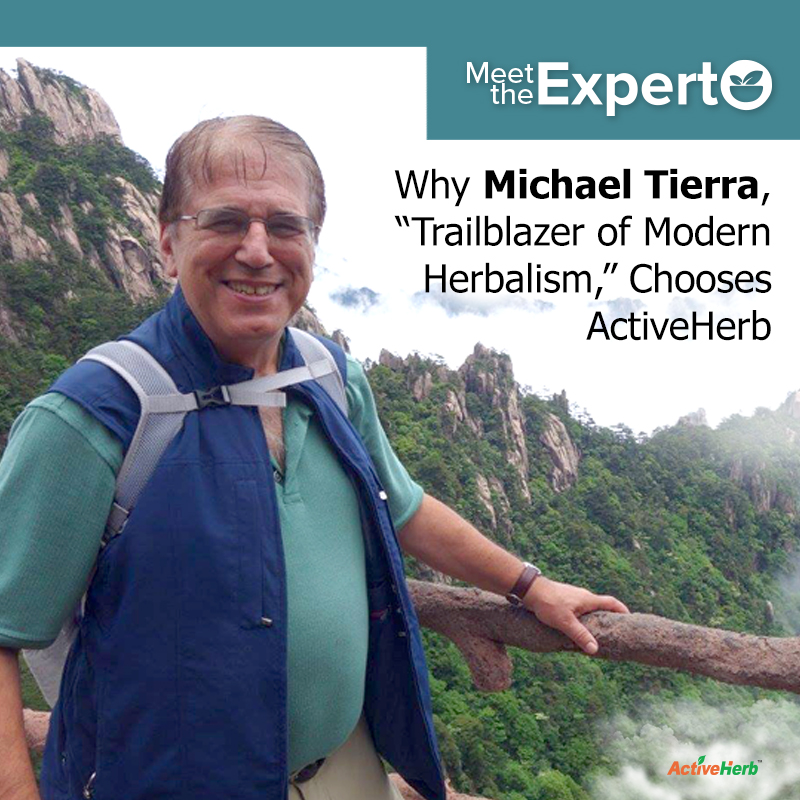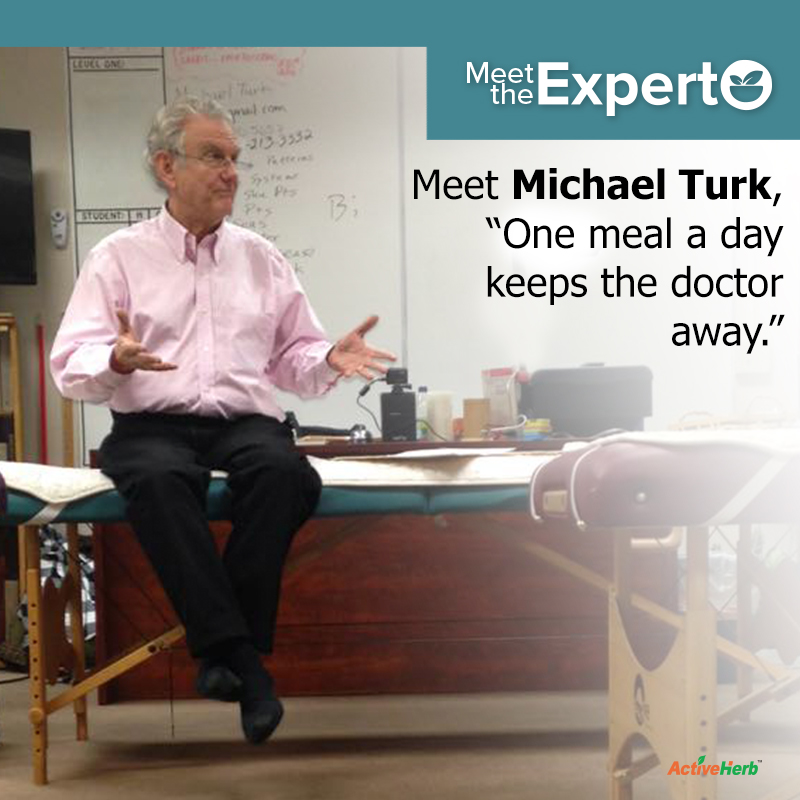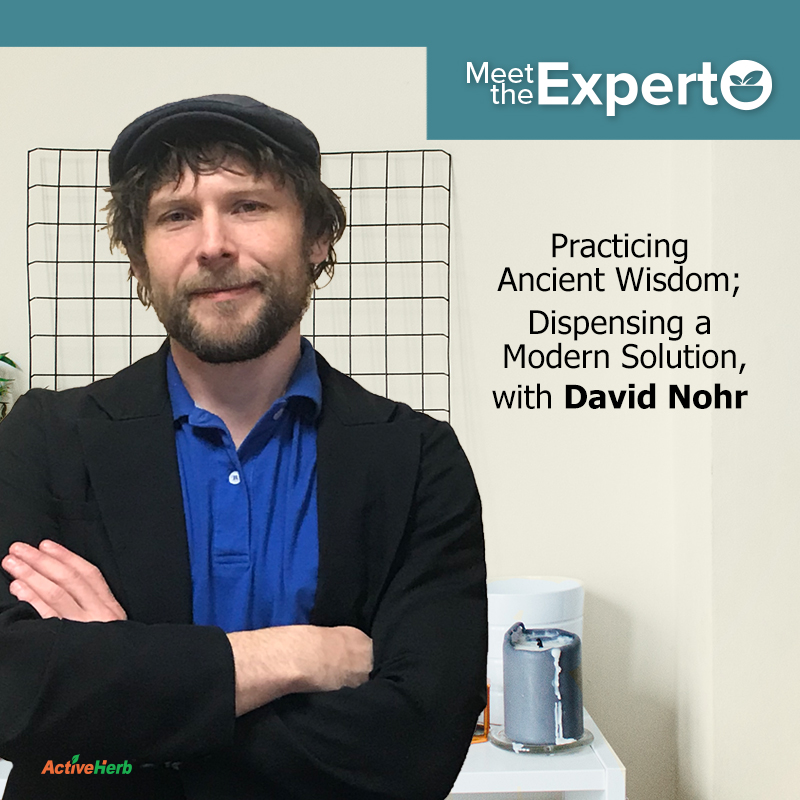Meet The Expert: Jake Fratkin, A Living TCM Legend
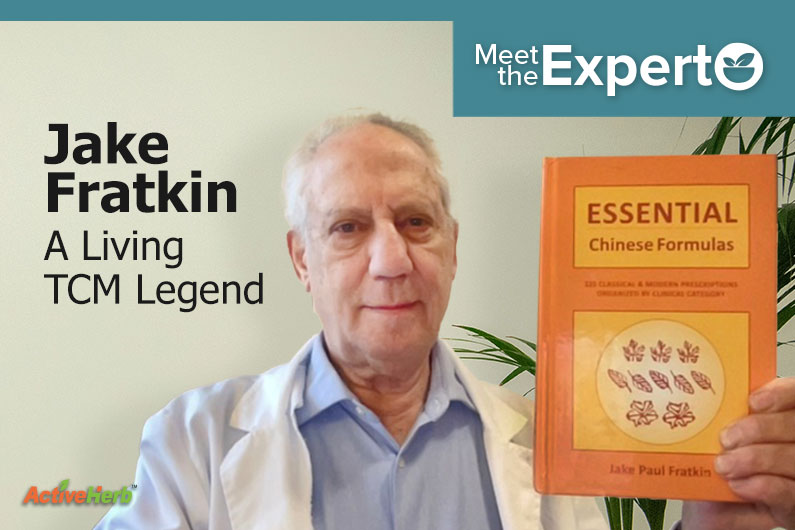
Living legend. Pioneer. Torchbearer. Visionary. Trendsetter. Trailblazer.
These epithets are overused and cliche.
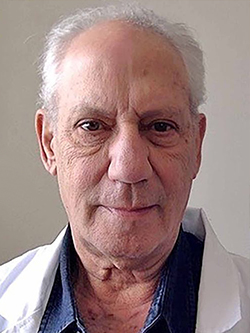
But how else would you describe someone who is one of the most influential doctors of Oriental medicine, one who has trained in Korean and Japanese acupuncture since 1975 and Chinese herbal medicine since 1982 and has been named both “Acupuncturist of the Year” and “Teacher of the Year” by the American Association of Teachers of Acupuncture and Oriental Medicine (AATAOM); created educational webinars and DVDs; authored the authoritative books: Essential Chinese Formulas, 225 Classical and Modern Prescriptions, and Case Studies in Autoimmune Disorders (co-author); and edited Practical Therapeutics of Traditional Chinese Medicine?
Really, how else can you describe someone who has been practicing acupuncture for so long that when he first started, there wasn’t even one single accredited acupuncture school in existence in the U.S.?
Perhaps: “influencer?”
No matter what you decide to call Jake Fratkin, OMD, ActiveHerb is honored that this TCM expert with a half-century of experience took the time to chat with us and offer his insights.
Jake Fratkin TCM Expert: A Brief Bio
Nowadays, it’s easy to see why someone would be interested in studying acupuncture. But how did Fratkin, in the early 1970s—an era when needles were more synonymous with heroin use in big cities—become drawn to a field that was still largely unknown in the West?
It was thanks to an article in the New York Times.
In 1971, a journalist for the Times, James Reston, underwent an appendectomy in China. His surgery was conventional; anesthesia was used. The difference, however, was that he later received acupuncture for post-operative pain relief. Reston’s description of how acupuncture alleviated his discomfort spurred Western interest in this curious ancient practice. Fratkin read the article, and, well, as the saying goes, the rest is history.
Seven years after Reston’s article was published, Fratkin opened his acupuncture practice, offering sessions for $10. (Adjusting for inflation, that’s under $50 in today’s money).
Fratkin spent a year in China, immersing himself in studying acupuncture and Chinese herbs under renowned masters. Since then, he has been pivotal in shaping national standards and exams for acupuncture in the U.S.
Widely recognized as an expert in both Chinese and Japanese acupuncture, Fratkin has been a key advocate for safety and quality control in Chinese herbal medicine across the West. As a leading authority on Chinese herbal patent medicines, he has been instrumental in integrating these treatments into mainstream healthcare, advancing the acceptance and practice of TCM.
East Meets West
Despite his encyclopedic knowledge of classic oriental medicine, Fratkin is anything but 100% old school. In fact, he advocates integrating functional medicine with TCM, so much so that he teaches a course on it to acupuncturists to help their clients rid their bodies of toxins, parasites and other environmental threats that are challenging to purge with herbs and acupuncture alone.
Fratkin doesn’t necessarily believe acupuncturists must study Western biomedicine or functional medicine. However, he believes herbalists should study Western diagnoses and etiology. This is because some chronic conditions that may not get diagnosed during an annual physical—leaky gut and sluggish thyroid function, for instance—are difficult to treat through a singular TCM lens. Many modern health concerns are not discussed in the classical literature of TCM. This conundrum has been addressed in modern medical texts in China, and hospitals there are increasingly blending TCM and Western medicine. Thus, Fratkin is not only a trailblazer in classic TCM, he’s at the forefront of this new pan-global medical paradigm.
The ActiveHerb Interview With Jake Fratkin
ActiveHerb: Emotional distress has always been part of the human experience. But it seems like these days, with a highly contentious election around the corner, global conflicts and economic pressures on the rise, staying emotionally balanced is more challenging than ever. Has this changed how you treat your patients and adapt ancient TCM practices to modern lifestyles?
Jake Fratkin: No matter what’s going on, my advice to acupuncturists is this: Treat what you find. This applies to any condition. In China, 70% of diagnoses are made not by pulse or tongue diagnosis but by asking questions that may establish pattern differentiation. These are questions related to digestive history, sleep patterns, bowel history, how they currently feel, the symptoms they’re experiencing, and take it from there…
AH: Because of modern stressors and events, feelings of anxiousness are ubiquitous. How do you get to the root cause to resolve those negative emotions?
JF: I ask patients if it is situational or chemical. In other words, what’s disturbing you? Is it happening due to an actual event or are issues coming up for no apparent reason? Is it chronic, or is it because your dog died? If the problem is deeper and chronic, then I’ll look for patterns in Heart or Liver. After I identify the correct pattern, I’ll recommend the appropriate formulas. I also use Japanese meridian balancing because it helps calm people and mitigate accumulated stressors.
AH: Your philosophy is to treat excess patterns before those of deficiency. Why is that?
JF: Because if you treat deficiency first, you will make the excess worse. This is true across the board with any problem. Take stomach pain as an example. If it’s due to deficiency plus excess, you have to descend stomach Qi first. But if you just tonify Spleen Qi, you will make that excess worse. Most patients present with a combination of patterns. I prioritize excess because it’s easier to identify. In comparison, if it’s a primary Deficiency problem, are we dealing with Qi or Blood or Yin/Yang? Addressing Deficiency requires more specific herbs.
AH: What’s your go-to method to address stress?
JF: Normally, when people internalize stress, it causes the Liver function to shut down, and it’s usually a pattern of excess. The Liver moves Blood in the classical understanding of TCM. When Liver begins underperforming, it shuts down the Qi in the channels and the Qi becomes stuck. That’s usually what’s behind the Liver with Qi or Blood stagnation, resulting in irritability or outright anger. This can be seen with PMS; it’s a perfect example of stuck Qi and Blood in the Liver. The focus becomes opening the Qi and the Blood in the Liver, and for that, I recommend the Guang Ci Tang formula Chai Hu Shu Gan Pian (Bupleuri LiverSoothe™). If it’s a headache, Chai Hu Long Gu Mu Li Pian (NeuroSoothe™) will help address the Liver Yang that becomes so stuck that it rises. As for PMS, I recommend Jia Wei Xiao Yao Wan (EaseTonic Plus). If the Heart becomes unbalanced because of stress, it’s usually because of deficiency, and this usually affects sleep, which is an underlying problem of anxiety. Beginning practitioners should know that depression may be due to internalized stagnation, which is a Liver problem, not a Heart problem.
AH: Many people assume that acupuncturists rely heavily on pulse and tongue diagnosis, but hearing you say they aren’t used that much in China is shocking. Please elaborate.
JF: You have to be very, very good at pulse diagnosis to rely on it for diagnostic accuracy. You don’t have to know all 28 pulses; acupuncturists can get by with just knowing the 8 basic ones, which more or less deal with organ excess and deficiency. As for tongue diagnosis, it helps maybe 15% of the time. Usually, the tongue does not reveal anything significant that can pinpoint a differentiation pattern. Again, assessing a patient’s clinical history is the most important. Keep it simple. Is the patient having their period? Do they have a recent injury? Are they not sleeping well? You really have to know who you are working with in the present moment and learn what’s going on in their life right now and follow the symptoms, and most importantly, treat their primary complaint. Surprisingly, many acupuncturists don’t do this. They rely too much on tongue/pulse diagnosis but dismiss the main complaint.
AH: So it’s just a matter of simplicity and asking questions?
JF: That plus 45 years of clinical experience (laughs).
AH: Michael Tierra (founder of The East West College of Herbalism) previously told ActiveHerb that 90% of acupuncturists don’t use herbs because they cram the information on Chinese herbs merely to pass the test. Do you agree with this assessment?
JF: Unfortunately, yes, I do. Look, I know plenty of acupuncturists that have wonderful practices and they don’t use herbs at all. This includes my son, who has a packed practice, but he has never really studied herbs. There are three levels of herbal knowledge. The first is entry-level, and it’s learning which patent Chinese medicines to dispense. These are formulas that have already been formulated for specific problems. The next step up is being good at pattern discernment and distinguishing between which patent medicines will offer the best results. The third and highest level is custom prescribing. This is the real art. Most American acupuncturists don’t have that level when they graduate. They need much more clinical exposure to really get good at prescribing herbs. It’s not very hard to get to the first or second level. You can do it within a couple of years after graduating acupuncture school. But for custom prescribing, you need to be a master at pattern differentiation.
Go study how the real experts do it. I spent a year in China studying how real masters custom-prescribed. I love custom prescribing. I’m really into it. However, many patients want a formula the second their appointment is over. They don’t want to wait for the acupuncturist to formulate the herbs. They want a formula they can take home right away.
At the very least, I think acupuncturists should be able to prescribe patent medicines (the first level). This is my big thing. My first book covered over 1000 patent medicines, many of which were formerly available in herbal shops in many Chinatowns. In my most recent book, I honed it down to 225. You don’t need super special pattern differentiation for the 225 formulas. Learning how to use Chinese medicines for common problems is easy. And one way to do that is through my book Essential Chinese Formulas. It really will break it down for you: 225 formulas you can use immediately. And if one formula doesn’t work, it’s not a big deal because these formulas are safe and won’t cause any harm.
AH: Should acupuncturists learn functional medicine?
JF: If you’re an acupuncturist, you don’t have to know functional medicine. But if you’re going to practice herbal medicine, you need to know a great deal about Western medicine and functional medicine. I like the diagnostic testing in functional medicine to see what’s going on on a deeper level. It’s easy to miss things like parasites, for example. That’s a limitation of classical TCM, whereas Western tools like blood tests and CT scans can be very valuable in understanding chronic symptoms that won’t go away. Herbalists should know if their patient has SIBO or is anemic or has a vitamin B12- or zinc deficiency. Knowing this puts you ahead of the game, and yields better patient outcomes.
AH: Let’s shift from acupuncturists to TCM consumers. Are you in favor of people taking tonic herbs everyday and generally self-prescribing?
JF: Sure. I’ve never seen tonic herbs taken every day mess anybody up. Especially for people after age 40 or 50 because the reserves of Qi and Blood and Yin/Yang start to diminish at that age. You can usually tonify these substances without any consequences. That being said, however, a young vibrant person may develop excess if they take tonic herbs every day. As for taking Chinese herbs without a recommendation by an herbalist, yes, that’s okay, and that’s what I like about ActiveHerb’s Guang Ci Tang patent medicines. They include an English name that makes it easy to understand what the formula can be used for, for non-TCM people who are self-prescribing. And if the Guang Ci Tang product doesn’t work, then find an experienced practitioner to fine-tune your pattern diagnosis.
AH: How do you feel about the state of the quality of Chinese herbs in the US?
JF: I think every well-known TCM company in the US is honorable and ethical and provides good quality herbs. The competition comes down to availability. What I like about Guang Ci Tang is they are less expensive, the tablets are smaller, the products are easy to understand; it’s a very useful product line. But what I don’t like is that the individual percentages of the herbs in the formulas are not listed. That shouldn’t concern consumers, but for someone like me who seeks to understand a particular product, I’d like to know.
AH: How do you feel about how popular acupuncture and TCM has become, considering its virtual non-existence in the USA when you began your practice?
JF: When I first started, it was like, “What’s acupuncture?” Now it’s, “What style do you practice?” Although I’m delighted by how much TCM has been accepted as a complementary form of medicine, I’m flabbergasted by how little progress has been made in getting Eastern medicine accepted into the Western medical model. The results [of TCM] are so outstanding. Western doctors don’t know anything about it; they just don’t like the idea of meridians fitting into their evidential paradigm. They are throwing out the baby with the bathwater; they don’t want to look at any of it. In China, most Western doctors will study TCM for a minimum of eight months, and they have a lot of respect for TCM. Also, in China, TCM is often integrated with chronic health conditions because it helps with efficacy and limiting side effects. It’s not so much that TCM has been evidentially disproven in the West; it’s more that researchers just haven’t looked at the proof—but there’s abundant evidence coming out of China.
AH: How do you feel about artificial intelligence (AI) being increasingly used for diagnosing?
JF: We’re just in the beginning. We can’t even fathom where it’s going. We have no idea how good it will get. It’s as true for TCM as it is in Western medicine. I think it’s going to be very helpful overall. But you have to take it with a grain of salt. You have to verify the results, just like Google Maps sometimes gets it wrong. You still have to rely on your brain power.
AH: Do you plan on retiring?
JF: Chinese doctors don’t retire. They die on the job.



